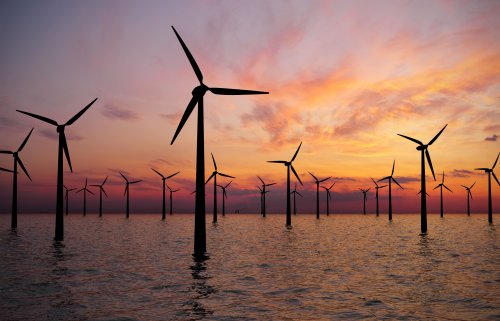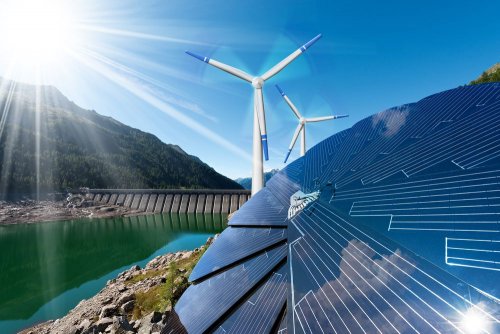Last month, the share of fossil fuels in the energy supply of the European Union countries fell to a record low of 23% for the first time, despite the increase in demand.
This was reported by the energy think tank Ember.
The growth of wind and solar energy, as well as the restoration of hydropower, led to a drop in fossil fuel production and increased the share of renewable sources in the electricity structure to a record 54%.
Wind and solar power alone generated more than a third of the EU's electricity in April. Coal's share in the energy mix was only 8.6%, down from 30% in 2023. Gas provided 12.1% of the EU's electricity, down 22% from last year.
"The once unthinkable is happening before our eyes. Fossil fuels are being pushed out of the European energy sector. Solar and wind power have become major players, proving that they are ready to take on the role of the backbone of today's clean electricity system," says Sarah Brown, director of Ember's European program.
The largest drop in fossil fuel production compared to last year in April was observed in Germany. At the end of March this year, 7 coal-fired power plants were closed in the country, the shutdown of which was previously postponed due to the energy crisis. Overall, electricity generation from fossil fuels fell by 26% in Germany, accounting for 32% of the total fall in the EU.
Italy became the second country with the largest reduction in the use of fossil fuels. Here, experts noted a drop of 24%, which was 15% of the total reduction in electricity consumption from fossil fuels in the EU.
The third place in the exclusion of fossil fuels from the energy balance is in Spain, followed by France and the Netherlands.
Despite rising demand, electricity generation from fossil fuels continues to decline. Brown cites coal as an example.
“From 2016 to 2023, coal has declined by more than 300 terawatt-hours, and there has been similar growth in wind and solar over that period. So we see that the structural reduction of coal is being largely replaced by wind and solar energy," she explains.
The Ember report also notes that last month's exceptional performance is part of a steady shift in the EU's energy transition, with emissions falling by 18% in the first 4 months of 2024 compared to the same period last year.
Earlier, EcoPolitic reported that in 2023 RES will produce a record 30% of the world's electricity.





